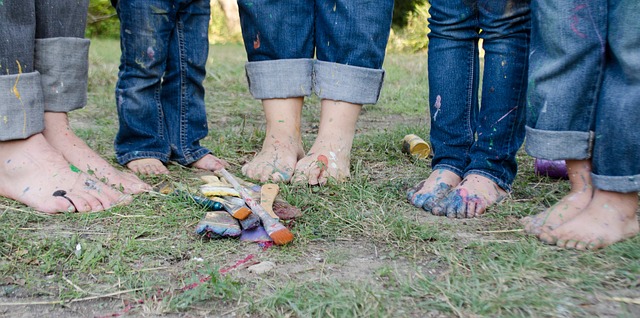What Does Family Day Really Mean?

Family Day may be a leisurely day off from work and school, but it’s meant to be an opportunity for to reflect on the importance of spending quality time with our families, and feeling gratitude for the deep bonds and connections we share with one another.
Our families today are rich and varied. No longer do we think of the traditional illustration of a family— a mother, father and their children. Instead, families can be led by single parents, same-sex couples, work families and friends— essentially, any community of people who love and support each other.
Often, more than one generation lives together. This trend is on the rise. According to a Pew Research Center report, “In 2014, a record 60.6 million people, or 19% of the U.S. population, lived with multiple generations under one roof”.

However we define our own families, ideally, they’re there for us throughout good times and bad. For example, when a baby is born or adopted, the family typically comes together to celebrate new life and offer help with the growing family. Family is also there when times are tough, such as job losses, divorces or deaths.
How Close Do We Really Feel to Our Families Today?
According to the 2013 General Social Survey, in Canada, more than 55% of people older than 15 reported they felt close to at least 5 members of their respective families. Another 23% felt close to 3 or 4 relatives, while 17% felt connected to only one or two relatives. 4% of those surveyed reported having no close relatives.
Canadians living alone reported fewer close family connections than those living with their immediate families. 31% of Canadians living alone reported having fewer than 3 close family members.
When it comes to overall health and well-being, strong family bonds are just as important as good nutrition, exercise and proper rest. In fact, research has shown that people who feel a deep sense of connection, and have fulfilling connections with others tend to live longer, healthier lives.
In comparison, when people lack the important bond of human connection, they stand a greater risk for depression, addiction, cognitive issues and shorter lifespans. In fact, one study from the University of Chicago found when individuals suffered from extreme loneliness (as often happens when people live devoid of family ties), their chances of premature death increased by a whopping 14%.
Experts agree that family support is invaluable when a member is in crisis, even when the affected family member is unable or not ready to seek help. For instance, when a person is feeling depressed, talking with other family members who express concern and demonstrate compassion can assist that individual in finding the information and support he or she needs— which improves the person’s chance for success.

Every person’s family history and circumstances are unique, but regardless of where you’re at today, there are steps you can take to create and maintain these all important family ties by:
1.Practicing gratitude.
Being grateful and showing appreciation for the people in our lives can play an important role in nurturing healthy family relationships. Recognizing the ways family members have been there for us, rather than focusing on past disappointments and challenges, can help us cultivate deeper feelings of appreciation and love.
2. Being the love and support you hope to receive.
Even when times are difficult, when we offer unconditional love to those around us, we strengthen ties that can help us receive more love and nurturing over time.
3. Practicing honest communication.
Speaking truthfully with compassion opens the channels of clear communication amongst family members. Being a good listener and allowing others the chance to speak their minds uninterrupted can help you become aware of different points of view, and understand when to offer advice to help create an atmosphere of mutual love and respect.
4. Being trustworthy.
Being a person who keeps confidences and follows through with commitments models good behaviour among family members and creates a family culture based on trust. Viewing one another as supportive allies that we can turn to in times of need ensures family bonds are kept strong.
5. Recognizing and honouring boundaries.
Respecting an individual’s need for privacy and space allows us to feel safe with one another.
6. Practicing patience.
Trusting that relationships unfold in their own time with no need to force preconceived outcomes allows us the freedom to be ourselves.
7. Practicing forgiveness.
Families are communities of people, and people often make mistakes. Therefore, forgiving those family members who have caused us pain, while also being willing to take responsibility for anything we have personally done, enables us to feel safe in our relationships and trust they will continue to grow and flourish.
Family Day is a wonderful opportunity to spend time with the important individuals in our lives whom we consider family. As suggested above, it’s also an opportunity to practice new beneficial behaviours and strengthen ties. Family Day allows us to be together, celebrate one another, and embrace all that is good about those who enrich our lives and allow us to feel connected, while expanding our capacity for the true joy family brings.
Happy Family Day from your friends at the Paradise Valley Healing Center.
